
The unemployed in Gaza
Geneva, 17 Sya’ban 1437/26 May 2016 (MINA) – The continuation of the peace process is a fundamental condition for economic development, work opportunities, and social justice in Palestine, as the decades-long military occupation of the West Bank and East Jerusalem, and the nine year blockade on the Gaza Strip continues to constrict the Palestinian economy, according to a new report released Wednesday by the International Labour Organization (ILO).
The upsurge in violence and punitive measures implemented against Palestinians in 2015 intensified hardships across the occupied territory as fundamental rights were continually violated and restricted, the report stated, adding that a renewal in the development of multilateral frameworks for a peace process is essential to easing economic stagnation in Palestine.
The Palestinian labor force reached 1.3 million in 2015, 3.5 percent higher than in 2014, while total employment grew by 5 percent, Ma’an writes, citing the report.
Unemployment dropped from 27 percent in 2014 to 25.9 percent in 2015. However, the report underscored that these changes were “not indicative of a tangibly healthier labor market.”
Also Read: Prof. Omar Yaghi, Palestinian Refugee, Wins Nobel Prize in Chemistry
The report reflected an increase of Palestinians employed on illegal Israeli settlements, with an increase of employment by 5.1 percent with some 115,000 Palestinians from the West Bank employed on a settlement, representing 11.6 percent of total Palestinian employment.
The report highlighted that the relief of unemployment rates in 2015 was largely attributed to changes in Israel’s permit system for Palestinians that lowered the minimum age from 24 to 22 and removed the requirement of having children in order to work in Israel or an illegal settlement.
However, the rise of employment dependent on Palestinian workers entering Israel or its illegal settlements was considered a worrying development in the report due to the work carrying “a growing risk of exploitation, abuse by brokers and violations of fundamental rights at work,” the report added.
Some 30,000 additional Palestinians work in Israel and illegal settlements without Israeli-issued work permits.
Also Read: Hamas Submits List of Israeli Hostages Amid Gaza Peace Talks
Unemployment rate worsened in Gaza
Meanwhile, in the besieged Gaza Strip, unemployment rose a staggering 60 percent among women in 2015, while there was a decrease in unemployment for men as a result of reconstruction efforts still underway following the devastating 2014 Israeli aerial offensive on the enclave.
Economic growth in the Gaza Strip is now solely driven by efforts to reconstruct hundreds of thousands of homes and properties destroyed during the 2014 Israeli assault, with over 90 percent of schools and hospitals having been rebuilt since the war and half of the 171,000 homes.
Also Read: Hamas Agrees to First Phase of Trump’s Gaza Ceasefire Plan
Despite these efforts, 75,000 Gazans have continued to remain homeless as a result of the 2014 assault.
The near-decade Israeli-imposed siege on the Gaza Strip has perpetually crippled the economy, the report stated, with Palestinians restricted from accessing land around the “no-go” zones 100 meters from the borders with Israel and “risk zones” extending even further into the territory.
These zones — enforced on border areas as “buffer zones” that represent a third of Gaza’s cultivable land — were unilaterally declared by Israel, as Israeli soldiers open-fire on Palestinian farmers and herders on a near daily basis.
The UN has also warned that unless current trends are altered, Gaza could become uninhabitable for residents by 2020. (T/R07/R01)
Also Read: Over 67,000 Palestinians Killed in Israel’s Ongoing War on Gaza: Health Ministry
Mi’raj Islamic News Agency (MINA)








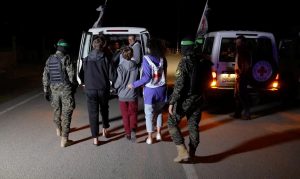

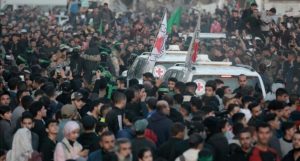



![French President Emmanuel Macron in Berlin, Germany on March 15, 2024 [Halil Sağırkaya – Anadolu Agency]](https://en.minanews.net/wp-content/uploads/2024/10/Screenshot_2024-10-22-20-57-45-59_40deb401b9ffe8e1df2f1cc5ba480b12-300x193.jpg)
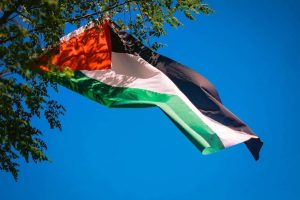
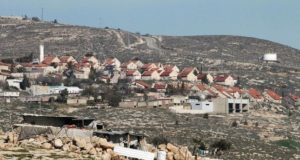
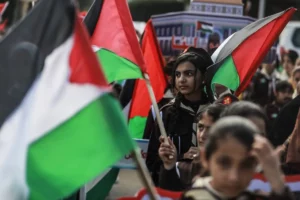
![UK Foreign Secretary David Lammy greets Palestinian Prime Minister Mohammad Mustafa following his speech at the High-Level International Conference on achieving a peaceful resolution to the Palestinian question and implementing a long-term sustainable peace, reviving the prospect of a two-state solution at the United Nations headquarters in New York, United States on July 29, 2025. [Selçuk Acar – Anadolu Agency]](https://en.minanews.net/wp-content/uploads/2025/07/Screenshot_2025-07-31-21-46-11-64_40deb401b9ffe8e1df2f1cc5ba480b12-300x179.jpg)







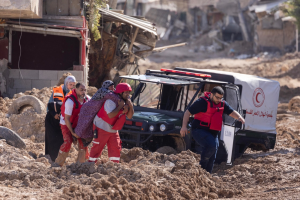
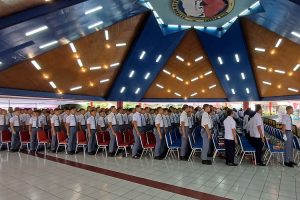
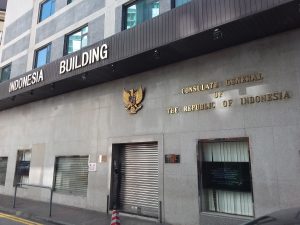




 Mina Indonesia
Mina Indonesia Mina Arabic
Mina Arabic